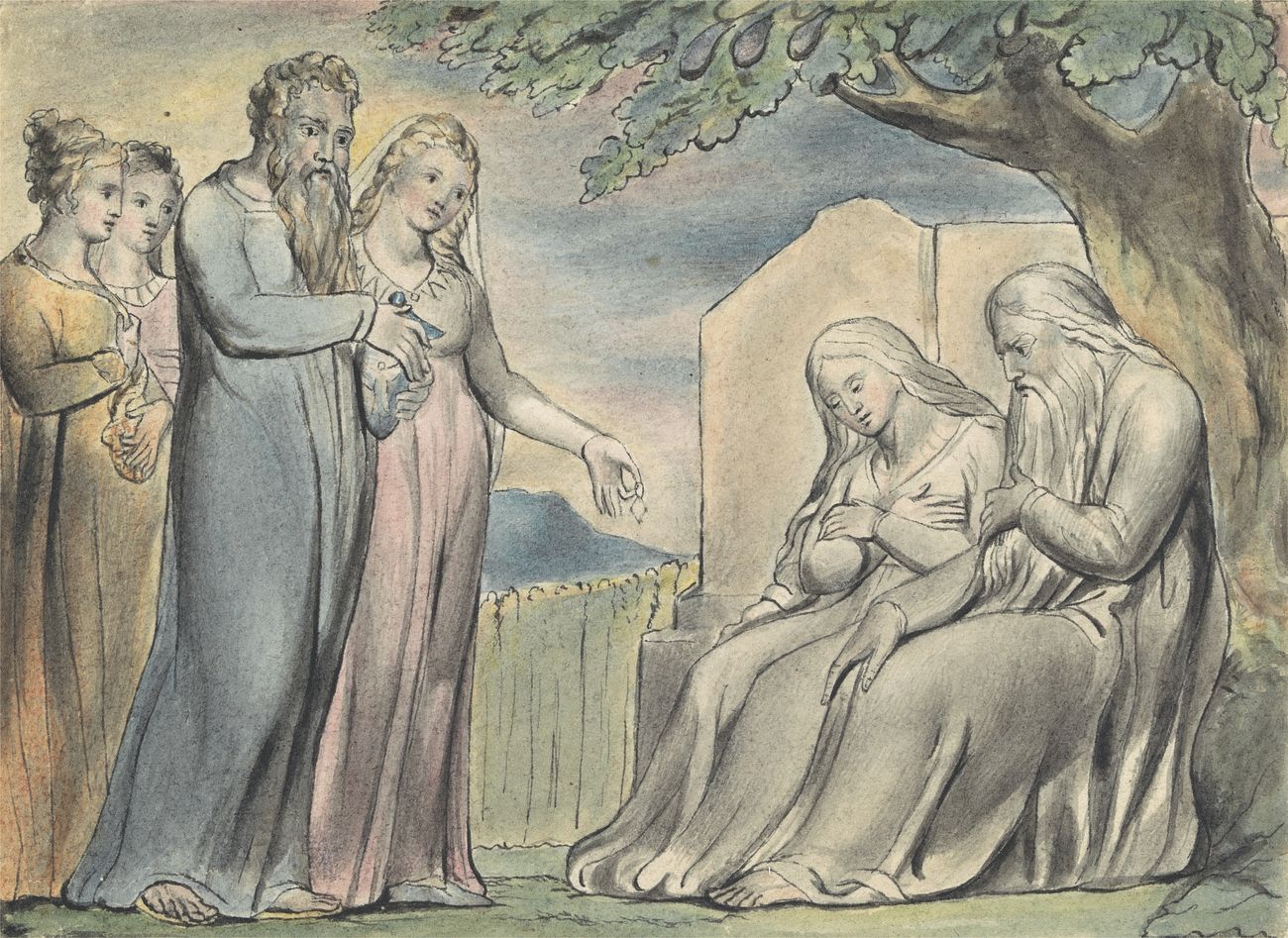A Course of Love: Combined Volume: Part 3: DAY 3 Accept Me by Jesus through the first receiver, Perron, Mari. A Course of Love: Combined Volume (p. 362). Take Heart Publications.
3.1 Accept your anger for it is the next step in the continuum upon which we travel. When a person is dying, just as when a person is undergoing this final surrender, there are stages through which one moves. The first is denial, the second is anger. We have already spoken of denial, albeit in a new way. Now we will speak of anger, in both an old and a new way. Let me suggest to you what it is truly all about. It is about the way you have learned and your lack of understanding of what this did to you.

3.2 What was it that was “taught” to in the time of learning? It was the mind. Thus, your mind has been trained for learning and you are most willing to have new insight, new information, and even new discoveries, enter through your mind—because this is known to you and is what you are familiar with. In the area of the mind were you most willing to accept teachers, leaders, guides, authorities, for only through them did you learn. You are beginning to see now that this learning was not a choice but only the way you knew life to be. While the freedom of childhood learning might be seen as the way learning was meant to be, the time of this pure learning has grown shorter and shorter while the time of enforced learning has grown more entrenched.
3.3 In the area of the body came another form of learning about which you saw yourself as having little choice. When the body had something to teach you, what choice did you have but to listen? So the mind and body were both conditioned to have learning thrust upon them. You long ago quit resisting most of this learning and “accepted” it as the way things are. This kind of acceptance is what we are reversing with a new acceptance.
3.4 With your heart you grew less accepting of these “outside” attempts at influence. You, who as both individuals and as a species, have been conditioned by thousands of years of learning through the mind—learning in often painful ways—said “no” to learning through the heart. Many of you will admit to growing a bit angry with the beginning of this Course and its challenge to your ideas regarding love. Most of you approached learning through the heart with even more openness than you did new ideas about love, not realizing that they were one and the same.

3.5 So our first point of discussion in the realm of anger is that no matter where anger seems to arise, anger is a product of the condition of learning. It always was, but now this is being revealed to you not just through my words, but by your experiencing of anger in new ways. You may not have felt a great deal of this anger yet, but it is there, and here we will discuss its function.
3.6 There is one area that is greeted with even more anger and more resistance in regard to learning of all kinds—in other words both old learning as well as new—than love. This is the area that you call money and that I call abundance. Feel your body’s reaction to this statement. Some of you will feel excitement at the idea of this issue being finally discussed; but be aware of your feelings as we proceed, for I tell you truly, here is where your greatest anger, and your greatest lack of belief and acceptance, lies.
3.7 You may believe a spiritual context for your life can change your life, make you feel more peaceful, give you comfort of a non-physical nature. These ideas, whether you realize it or not, are all associated with mind. It is through your mind that these new ideas will change your actions and your life, your mind that, through increased stillness, will give you more peace, your mind that will accept comfort of a certain type, even extending to a new comfortableness of being. You believe having a spiritual context for your life can, in other words, change your inner life, but are more skeptical in regard to its ability to affect your outer life; and nowhere are you more skeptical than in regard to money or abundance. The area of money, or abundance, is where learning fooled you and failed you the most.

3.8 You may believe that having a spiritual context for your life will assist you in feeling more loved and possibly even assist you in finding some one to love. You may believe that this spirituality can help mend a feeling of broken-heartedness, can cause you to extend forgiveness to those who hurt you, to make amends to those you hurt, or to simply quit feeling guilty or bitter, shamed or rejected because of them. But you do not believe this spiritual context is capable of bringing you the lack of want you associate most strongly with money.
3.9 Just posing the idea that having a spiritual context for your life will assist you in living abundantly will cause you to think, “I doubt it.” Or, “I’ll believe it when I see it.” You might think spirituality can assist you in living a more simple life and thus a life of limits of which you are more accepting. But given time to consider such an idea, you are likely to become more and more agitated, to go back and forth between the general and specific, thinking of both your own lack in life and that of those whose lack is more pronounced than your own. Fairness seems non-existent in terms of who “has” and who “has not,” and the world seems made up of haves and have nots and to function in the insane way that it does largely due to this discrepancy.
3.10 In such a case, would it make sense that we not address this issue, this blatant cause of so much insanity? This cause of such anger?

3.11 Let us return for a minute to the base idea behind the issue of money or abundance: the way you have learned. The mind would tell you that nothing is “given,” and that all must be either learned or earned, most times both, for you have learned in order to earn, learned in order to advance yourself in the world in one way or another. Since money or abundance is not a “given” for all, but only for a few, you think of it much like the “given” of natural gifts or talents, the “givens” of fresh and inspired ideas. You do not, however, see that these are in truth linked as givens, for you do not see that all are gifted.
3.12 It is only because some are gifted more abundantly than others that they can use the givens of talent and inspired ideas to bring them wealth. This is the idea of bartering, which we have spoken of before, or bargaining, which we will speak more of here. It is the base idea that is behind all ideas of lack, an idea you so thoroughly learned during the time of learning that letting it go, even now, still torments you with worry and anger. It is the idea of an “if this, then that” world. An idea of a world in which the beliefs set forth within this Course are neither seen nor lived by.
3.13 This is the basic fallacy that the time of learning supported. The idea of “if this, then that.” The idea of abundance earned. The idea of nothing being truly free. Not you, and not your gifts. Everything coming with a price. Abundance comes, even to those gifted, only through the exploitation of gifts. Abundance remains, even to those born with it, only through the exploitation of others. Only through some having less do some have more.
3.14 To think in such terms, and then to see such thoughts as even capable of having spiritual value, is something you think of as insane. There seems no remedy, and so you would rather not even attempt an understanding of how things might be different. As far as you have come, these ideas are still with most of you to one degree or another. Even though you know these are false ideas, and in that knowing may even say to yourself as you read them that you no longer think in such a way, they are there in the learned pattern and you know this too. They are what prevent you from believing that the ideas set forth in this Course, when practiced, are capable of making a difference, especially in terms of monetary abundance. This is one of those situations in which you know and have no idea what to do with what you know. Being unable to replace, in application, the false with the true, the pattern of the false remains. 3.15Yet how can you accept yourself when you have feelings such as these? How can you accept the idea of inheritance with ideas such as these? How do you accept me when you see me as symbolizing a life of “godly” poverty, and of calling my followers to abandon their worldly goods?
3.16 Thus must this source of your anger and discontent, this source of your non-acceptance, be revealed in a new light.
3.17 Let’s go back to the idea of money when it is seen as a “given.” It is seen as a “given” in one case only: In the case of inheritance, in the case of those “born” to money. Thus this is a good place to start, since inheritance is that of which we speak. Let’s be clear that we are not speaking of money or abundance as being “given” when it is hard work to attain. Not even when it seems to come from some event of luck or fate. We are talking specifically here of the money “given” through inheritance, the money some lucky ones are born with.

3.18 These are those who are resented most within your world. And yet envied. This resentment and envy fills you with anger. If you feel any anger now, pay attention to its effect on you. You can feel, perhaps, the strain and tension in your stomach, back and neck.
3.19 The degree of your discomfort with this issue is something you only imagine to be greater than that of your brothers and sisters. A few of you will not feel this, and if you are among those few, do not skip past this dialogue, but join in so that you understand, as do those for whom this dialogue is meant, the power of this aspect of your brothers’ and sisters’ lives, and the power and function of anger.
3.20 The power of money to affect you is a power that is denied, rarely acknowledged, seldom spoken of. Think you not that the shame that comes from heartaches or mistaken actions is any greater than the shame those feel who feel no abundance, who suffer a lack of money. There is still a commonly held belief that abundance is a favor of God and, as such, those who do not experience abundance have done something wrong. We will return to this, but first let’s continue with the denial of money’s effect.
3.21 The shame and pain of heartaches and mistakes are more often and more easily spoken of than the shame of monetary failure. Certainly much complaining and general fretting are done, but only to the degree in which you feel you are in the same circumstances of those to whom you complain. To speak of money matters with someone who might have more than you, you would consider a shaming act. You would fear that they might think you want something from them and you would suffer embarrassment. To speak of money with anyone who has less might open the door for a request for what you do not feel you have to give. To reach a position in which you feel you need to ask for money from others, even from a bank, is seen as a dire situation indeed. This asking will likely be an ordeal of some consequence. Even those who are seen by others as constant “takers,” unafraid to ask for a “hand out” or free lunch, experience these same emotions, the buildup of anger, resentment, and shame.
3.22 In the realm of money lie your biggest failures, your greatest fears, the risks you have taken or not taken, your hopes for success. What you wish for is contingent upon having the “means” to pursue it, and few of you truly think that money would not solve most of your problems. Even those of you on this spiritual path think money is among the greatest limits to what you can accomplish, to how you can live the life you would choose to live. You may have left behind aspirations of wealth, and replaced them with ideas of having more time, more fulfilling work, simpler pleasures, and yet you still see your new state as one that does not touch upon this aspect of “reality.” The better life you might attain will be a by-product rather than the effect of Cause.
3.23 Here is the real of the old “reality” most solid and unrelenting. Not having “enough” is the “reality” of your life because it was the reality of the learning life. Even if you are one of those others consider lucky, one of those who always has “just enough,” little do others know that your fear is as great as theirs. That while you admit you have “enough,” you are sure it will not be enough for what the future holds. And if you ever need evidence for this position, it is quick to come. As soon as you get just a little bit ahead, a need arises. The roof leaks, the car breaks down, and an endless series of needs arise. This “evidence” is exactly what you have sought.
3.24 This is the way fears operate. They operate in the pattern of the ego, a pattern that was learned, a pattern that was emphasized and reemphasized through external events so that it would not be forgotten, so that it would reinforce wants until this attitude of wanting seemed impossible to unlearn. It is a pattern of survival, but not of your survival. It is the pattern of the ego’s survival, and even though the ego is no longer with you, the pattern remains because what you learned, and the way in which you learned it, remains.
3.25 Remember, you have learned that nothing is “given,” for what use would you have of learning if such were not the case? In our dialogue, we have begun to use examples of what you did not learn in order to demonstrate that what you learned is not true. What you learned is insane. But to realize the truth you must now fully reject the untruths that you learned. You must fully reject the ideas that taught you that you do not have enough, that you will only have what you can earn or learn, that only through effort will you gain, and that with your gain will come another’s loss. In other words, here is where you must accept the teachings of this Course.

3.26 Do not feel dejected that you have not learned these things. They were learned, to the degree that you could learn them within the teachings of A Course of Love. But beyond learning is where we now stand. We now stand at the place of the rejection of learning—the rejection of all you learned.
3.27 Let me set your mind at ease, for you are not called to sacrifice, as you have been told time and time again. I do not ask you to give up what you desire, but to expect and accept a response to what you desire. Remember that we are headed even beyond desire, and know that desire must first be met before you can be taken beyond it.
3.28 The condition of want, like all conditions of learning, ended with the end of learning. The condition of want was a learning device—not one of divine design, but one of the thought system of the ego. It was a trick to keep you constantly striving for more, a trick to guarantee the survival of the ego-self, a trick that provided the small rewards of time-bound evolution, the small rewards that would keep you assured of progress through effort, and just as assured of ruin through lack of effort.
3.29 You think abundance is the most difficult thing to demonstrate, when it is actually the easiest. You think you could learn what is for you the most difficult type of learning, be it philosophy, math, or foreign languages, before you could learn how to make money, or in other words, to have abundance. You think you could more easily find love than money, even those of you who have felt loveless for too long to contemplate. And those of you who scoff at these remarks, because you feel you have learned the secret of money, the secret of success: Answer truly if you really believe this, or if you are merely covering over your fear of not having enough with an incessant drive to prove it is not so.
3.30 Just as so many of you are thankful for your good health while at the same time dreading the disease that may at any point take it from you, those of you who have money see it in the same way. You may go along just fine for weeks or months or years, unworried about your health until the slightest pain makes you think of cancer. In this same way, there are not any of you, those who have money or those who have none, who feel that your financial “health” is any more secure than the “health” of your body.
3.31 How can you live like this? How can you have any peace when you live like this? What succor will your inheritance provide if thoughts like these accompany your inheritance? Were this a monetary inheritance, would you not squirrel it away for a rainy day, or spend it only with trepidation and an eye upon the bank account? Even those of you who would feel prepared to let it bring you joy would err in thinking that it could. How many times has what you thought would provide you with reason for joy failed to do so once acquired?
3.32 And so you might think, here, of what has brought you joy. A home, a garden, a musical instrument, the equipment that enabled a hobby or talent to be developed, a well-loved book, dinner with a friend, a new car, a new pet, the ability to provide a child with a good education.
3.33 You might think here too that money made from what you love to do has a different quality than money earned from toil. You might think that money earned from what you love to do is the answer, just as you might think that money spent on the more lasting pleasures such as the things described above is the secret.
3.34 For you are quite certain that there is a secret you know not. There is, and it is a secret I will try to share with you here, if you can let your disbelief and anger at this suggestion fall away. I know you expect a flowery answer, and surely not one that will be a “one, two, three steps to abundance” answer; but I will try to address you in an in-between tone, one that will not cause you to feel spoken down to or incite your hostility. One that will not only be truthful, but as practical as you need it to be.
3.35 You have been told that the time of the Holy Spirit, the time of a need for an intermediary between yourself and God, is gone. You have been invited to know God directly, and to develop a relationship with God. It is only in knowing God that the relationship of abundance will be made clear to you and break forever the chains of want. 3.36Learning is no longer the way for good reason. It exemplifies the difference between information and wisdom, between finding an answer and finding a way or path. Many have read the words of the Bible, the words of Lao-tzu, the words of Buddha. To teach is to convey the known. To speak of a way is to invite dialogue and a journey. This is what all master “teachers” taught, often throwing the questions posed back upon the poser, in order to say: Use me not as an intermediary. It is only in relationship with the God within that the way will become clear.
3.37 To read the inspired wisdom of teachers such as these in order to “learn” has prevented the very relationship that these teachers sought to impart.
3.38 What you have “learned,” and since the time of learning had revealed to you, is a new way, the way of direct relationship with God, the way of knowing through discovery. Remember always that knowing through discovery is knowing what was not known before, and keep this in mind as we consider the knowing of abundance.
3.39 When you have felt the reality of union, you have felt the place in which no want exists. You felt this through the responsiveness of the relationship that is unity. You perhaps desired an answer that “came to you” through no process you had known before. We spoke of this as thoughts you did not think. We spoke of these thoughts you did not think coming with authority and certainty, a certainty you had previously lacked. When I said earlier in this chapter that you are most comfortable learning through the mind because of your familiarity with the pattern of learning through the mind, you can perhaps see why these first revelations of union would come to you in a way associated with the mind.
3.40 You have accepted now, because of whatever experiences of unity you have had, that the knowing of unity is available to you. You may not have given great consideration to the access through which that availability arose, but since for most of you it has arisen as thoughts you did not think, if you were to make an association in regards to entry, you would likely say the entry point was the mind. This is, in a sense, true, as wholeheartedness is comprised of the mind and heart joined in unity. It would be more true to think of this joining as creating a portal of access, a new source of entry. But these points do not advance our discussion now and can be returned to later. The point here is your “concept” or idea about what you have gained from unity thus far being that which can be gained through the mind. As you advance, and as you become more open to other means of accessing the wisdom you once sought through learning, or through the mind, other means will open to you. You may see, audibly hear, and interact with what comes to you from union.
3.41 The idea I am trying to open to you here is the idea of a responsive relationship with unity that does not exist only within the mind of the wholehearted.
3.42 It is the visible world, the outer world, through which your wants find provision. It is the world of unity, the true reality, through which your desires are responded to. This does not mean that the place of unity is a place that does not interact with the place of form. It is interacting with the world of form through you.
3.43 Do you not see? You are the entry point, the only channel through which all that is available in unity can flow.
3.44 Abundance is the natural state of unity and thus your natural state, just as certainty rather than uncertainty is your natural state, just as joy rather than sorrow is your natural state. What you are being asked to do here, is to open the self of form to the place of unity, thus allowing this divine flow of union into the elevated Self of form.
3.45 Being open to the divine flow of union is the exact opposite of the condition of anger. Anger could be likened to an argument, a debate, in which you are on one side and determined to be the one who is right, the one whose side will win. What you hope to win, in this insane argument about abundance, is an acknowledgment, even from God, that you do not have what you need, that you are lacking, and that because of this, you have no choice but to continue to struggle and strive, to earn and to learn, to, in short, carry on in the world as you always have.
3.46 Even those of you who would claim to know this anger not, who would claim to wait in trusting silence for God’s provision, are still waiting for provision. Even those of you who have asked God for abundance, and opened yourselves to receive it, even those of you who have seen some improvement or evidence you could cite as a response to your requests, see not the truth of the situation.
3.47 You still believe the truth of the situation to be the reality of physical form and of what you have or have not within the confines of that form. This would be like still seeing the mind as the only source of learning, and learning as the only source of knowledge. What you have begun to see is that the mind is not the source of certainty, no matter how much knowledge it attains. What you have perhaps begun to see in similar terms, is that money is also not the source of certainty, no matter how much it enables you to attain. Certainty, in other words, comes from somewhere else. This somewhere else we have defined as your true reality, the reality of union. Living in this reality, the reality of certainty, is the only key to abundance.
3.48 These words are just what you may have expected to hear, and you may feel a return of feelings of anger here. But we have said that there is a function for your anger. The function of anger is to lead you to the step beyond it, the step of action and ideas, the step often called that of bargaining.
3.49 Many of you will have already entered this step, this step of considering how what you might do might affect the response of God. You take this step without realizing that you are still acting in accord with ideas of it being an “if this, then that” world. You try to guess what God might want you to do, be it being still and not worrying about money, or taking actions, right-actions now, as opposed to your idea of the wrong-actions of the past, in order to bring money or abundance flowing to you. All that this period of bargaining represents is yet another stage in your movement toward acceptance. It is still based on the belief that you are responsible for the abundance or lack of abundance in your life. That it is you who, by changing your beliefs or your actions, can change your reality.
3.50 This is often a hopeful period and it, too, is not without value. You may have many good and even inspired ideas within this time. You may feel as if you are on the right track, that through the planning out of strategy and action, through putting all that you have learned into practice, you are sure to begin to see the benefits that have been promised. But many of your ideas and actions at this stage will be tinged with the anger that came before it. Here is where you may rail at the unfairness, at the unseen benefits of what you have acquired from this learning, of promises seemingly made and not kept. Where, you may ask, is the lack of struggle that has been promised? Why do you still have to try so hard? Work so long? Endure so much? Why isn’t the end in sight?
3.51 The final stage in this process, this movement toward acceptance, is depression, a lowering of spirits and energy, a lack of desire, a lack of activity, a sinking feeling of going under, of going into the depths of sadness and despair.
3.52 Each stage may contain hints of the other, but in regard to money, or abundance, each stage is experienced and felt. This experience has only one combined value, one combined purpose, the purpose of the final letting-go, the final surrender that is necessary for the final acceptance to come into being.
3.53 Just as you were told you cannot “think” great ideas into being, or great talent into fruition, just as you were told, in other words, that the “givens” are not to be dealt with by the conscious, or “thinking” mind, so too is it with abundance. Abundance can only be accepted and received, just as great ideas and great talent can only be accepted and received.
3.54 You might argue now that what you do with great ideas and great talent is of consequence, and this is true. A great idea or great talent that is not brought into form, that is not expressed, that is not shared, is no greater than a seed not planted. But the gift of the great idea, the great talent, must first be seen and recognized, acknowledged and accepted, before it can be brought into form, expressed, and shared. What good would it do you to say “if I had talent,” I would accept and receive it, express and share it. “If I had a great idea,” I would accept and receive it, express it and share it. And yet you continue to think that if you had money or abundance, you would accept and receive it, express it and share it.
3.55 This if is all that stands between you and abundance.
3.56 You do not believe this, however, and the functions of denial, anger, bargaining, and depression are to lead you to this belief and, finally, to this acceptance. Acceptance first that you do not believe. And then acceptance itself.
3.57 Do you see the difference, even here, in belief and acceptance? Can you begin to see acceptance as an active function, much as learning was an active function? Acceptance is an active function. It is something given you to do. You think it is difficult, but it is only difficult until it becomes easy. 3.58While you think of acceptance as just another word, another concept, another trick of the mind, you will not see it as the replacement of learning, and as such as an active state, a state in which you begin to work with what is beyond learning, a state in which you are in relationship with what is beyond learning. It is in truth, a state in which you enter into an alternative reality, the reality of union—because you accept that reality.
3.59 Like all that was taught within this Course, this is a matter of all or nothing. You cannot accept part of one reality and part of another. You cannot accept, for instance, the compassionate and loving benevolence of the universe, of God, of the All of All, and still accept the reality of lack. You cannot accept that in the reality of unity all things come to you without effort or striving except money. You cannot accept that you no longer have to learn and accept the condition of learning that is want.
3.60 Active acceptance is what allows the great transformation from life as you have known it, to death of that old life, to rebirth of new life. By clinging to some of the old, you prevent its death and you prevent the rebirth of the new. You prevent the very life-giving resurrection you await. You prevent the elevation of the self of form.
3.61 This does not have to be. You have wanted something to do to change your circumstances in this earthly reality. This is what you have to do. This is the action required. The active acceptance of abundance is the way to abundance. Active acceptance is a way of being in relationship with all that flows from unity. This you cannot learn but you can practice. Thus your practice begins.
Perron, Mari. A Course of Love: Combined Volume (pp. 447-450). Take Heart Publications. Kindle Edition.


Leave a Reply